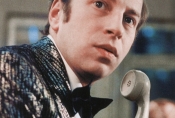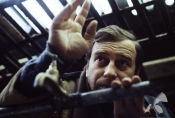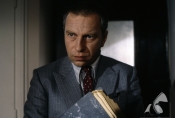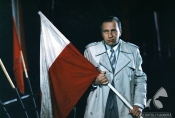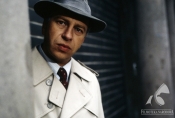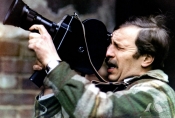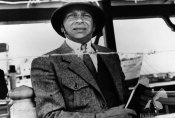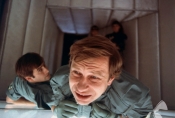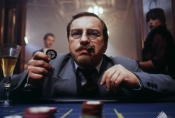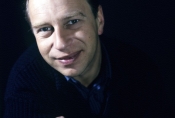Jerzy Stuhr
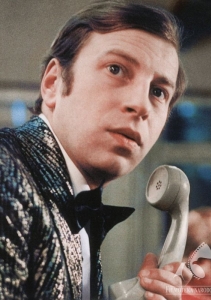
Actor, director and screenwriter. He was born on April 18, 1947, in Krakow. Graduate of Polish Studies at Jagiellonian University (1970) and the Acting Department of the Krakow Drama School (graduated 1972). For many years, he was associated with the Stary Theatre in Krakow (1972-1991, now a collaborator), having acted in the legendary Dziady/Forefathers’ Eve, directed by Konrad Swinarski. Since the 1980s, he has also collaborated with Italian theatres, and since 1985 he has been directing theatre plays himself (he debuted with The Double Bass by Patrick Süskind, playing the lead himself).
Even at the beginning of his career, he had some outstanding roles in the cinema of moral anxiety. He played the title character in Wodzirej/Top Dog (1977) by Feliks Falk and in Pokój/The Calm (aka Peace and Quiet, 1976) and Amator/Camera Buff (1979) by Krzysztof Kieślowski. In 1983, he played the role of Max in the cult film Seksmisja directed by Juliusz Machulski. He also starred in his subsequent comedies: Kingsajz (1987) and Deja Vu (1989). He portrayed the title character in Obywatel Piszczyk/Citizen Piszczyk (1988) by Andrzej Kotkowski. He has also played major roles in the films he has directed.
He began directing films in 1994. He made the Spis cudzołożnic/List of Lovers based on the novel by Jerzy Pilch (Special Jury Award at the Polish Film Festival in Gdynia), in which the protagonist reminisces about his youth. As an artist, Stuhr is heavily influenced by his collaboration with Kieślowski, which can be noticed in the moral appeal of his films, the poetics (a fairy-tale like quality, often close to that of a morality play) and themes (the condition of the Polish intelligentsia, the need for love, dignity). At the same time, he remains an independent artist and author of original cinema.
In 1997, he made Historie miłosne/Love Stories, in which he portrayed the love life of four different characters, concluding them by assessing whether they met the challenge of love. The film received many honours, including the Grand Prix at the festival in Gdynia, the FIPRESCI award at the Venice Film Festival and the Grand Prix at the festival in Newport Beach. Another great success was his Tydzień z życia mężczyzny/One Week From A Man’s Life (1999), awarded the Special Award of the Jury at the festival in Gdynia. A year later, he directed Duże zwierzę/Big Animal (2000), based on the short story Wielbłąd/Camel by Kazimierz Orłoś, which Kieślowski was actually going to film many years earlier. It won the Grand Prix at the festival in Wiesbaden and the Special Award at the Karlovy Vary IFF. In 2003, he made Pogoda na jutro/Tomorrow's Weather – the story of a man who, after several years of seclusion, is trying to adapt to his changed social reality, looking for a place among his own family (FIPRESCI award in Wiesbaden, award for best director at the festival in Antwerp). He addressed the subject of vetting and having to account for the deeds of the past in the film Korowód/Twists of Fate (2007).
He also directed Television Theatre, including plays by Moliere and Gogol. He has collaborated with his son Maciej, an actor, several times.
He is the author of the autobiographical books: Sercowa choroba /Heart disease (1992) and Tak sobie myślę/I'm thinking (2012). In 1994, he received the title of professor in the field of performing arts. He is a lecturer at the Academy of Dramatic Arts in Kraków, he served two terms (1990-1996 and 2002-2008) as rector of the university. He received a number of honours for his artistic and educational achievements.
Jerzy Armata
Selected filmography
-
1997
LOVE STORIES
